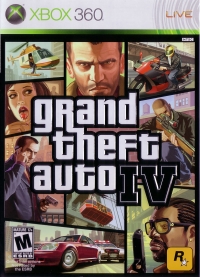This article is from the first edition of The Video Game Librarian website I published between 2008 and 2010. It was originally written on January 13, 2009.
If you’re a numbers geek and you have access to a Wii, the Nintendo Channel is a must have download from the Wii Shop. The Nintendo Channel is Nintendo’s preview section for upcoming DS and Wii games. It includes streaming video, DS demo downloads, and information on nearly every Wii and DS game in existence (including WiiWare and Virtual Console titles).
It’s this information section that brings the fun for statistics geeks. Every Nintendo Channel that opts in to the tracking service sends Nintendo the titles of the games they play and how long they played it for. Nintendo then compiles this information into each game’s profile and tracks how many people have played it, how many times they’ve played it and how long they’ve played it for. So it’s possible to track which games get played the most.
And that’s exactly what the MTV Multiplayer blog has been doing every month since September.
Following that link will lead you to a breakdown of the usage stats for 41 Wii games. The MTV blog used Wii Sports as the benchmark to figure out the total number of users that allow the Nintendo Channel to track their game playing (which was 1.6 million). This makes sense seeing as how every Wii owner has Wii Sports and has played it at least once.
So, based on the Nintendo Channel stats, these are the games that have been played the most (per player) on the Wii:
1. Super Smash Bros. Brawl
2. Guitar Hero III: Legends of Rock
3. The Legend OF Zelda: Twilight Princess
4. Wii Sports
5. Rock Band
6. Mario Kart Wii
7. Madden NFL 08
8. Super Mario Galaxy
9. Animal Crossing: City Folk
10. Metroid Prime 3: Corruption
Be sure and check out the MTV blog post, it’s very interesting reading and a great way to find out which Wii games are the most popular when looking for titles to add to your collection.

 Is all the Grand Theft Auto IV information that’s swirling around the Internet a little overwhelming? Probably so, but if you’re planning to add the game to your collection, it helps to be prepared!
Is all the Grand Theft Auto IV information that’s swirling around the Internet a little overwhelming? Probably so, but if you’re planning to add the game to your collection, it helps to be prepared!